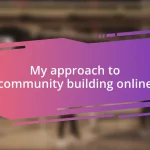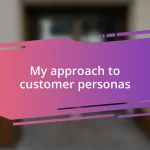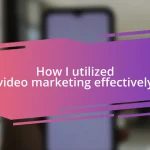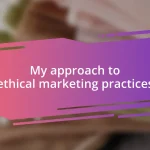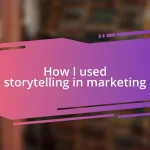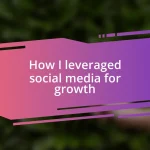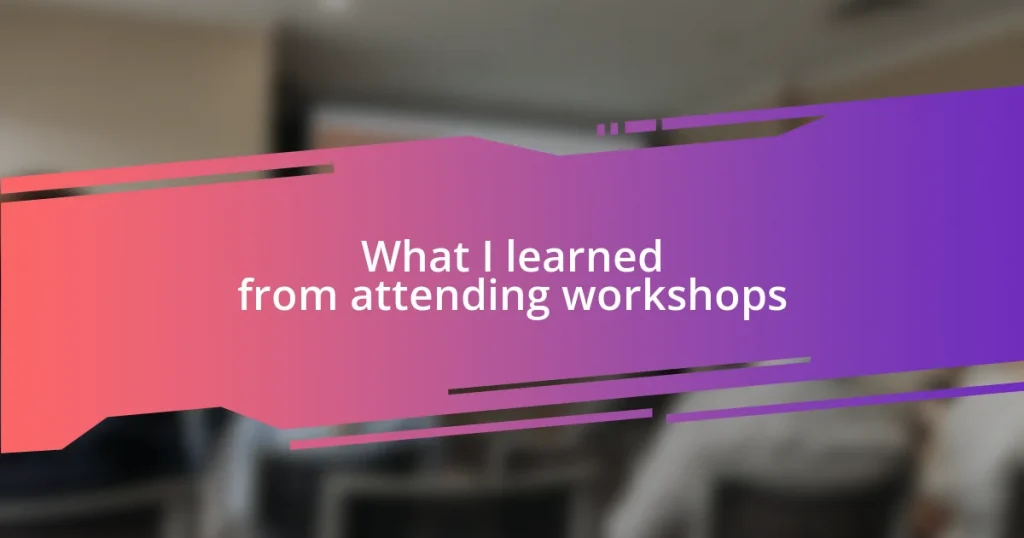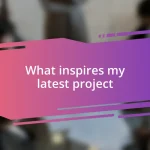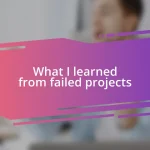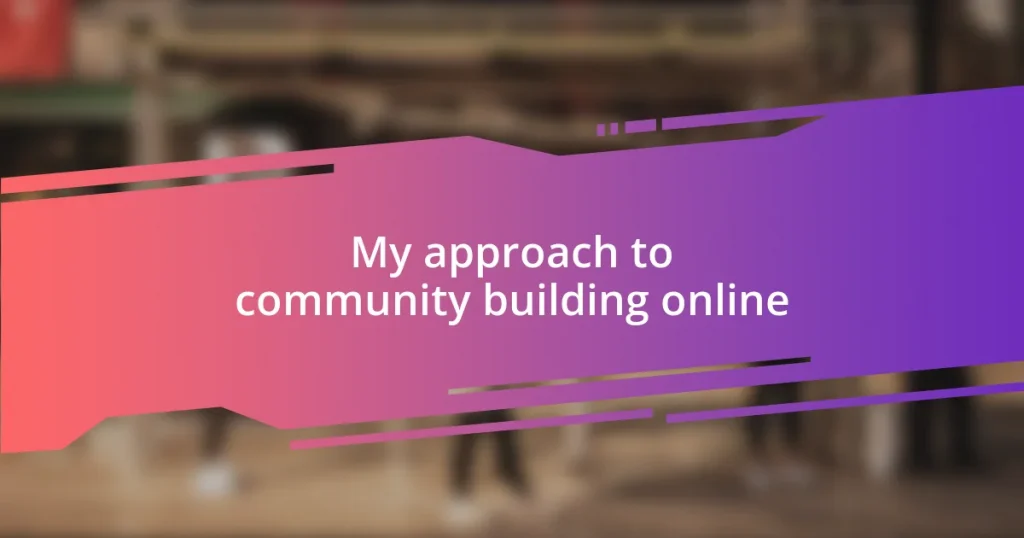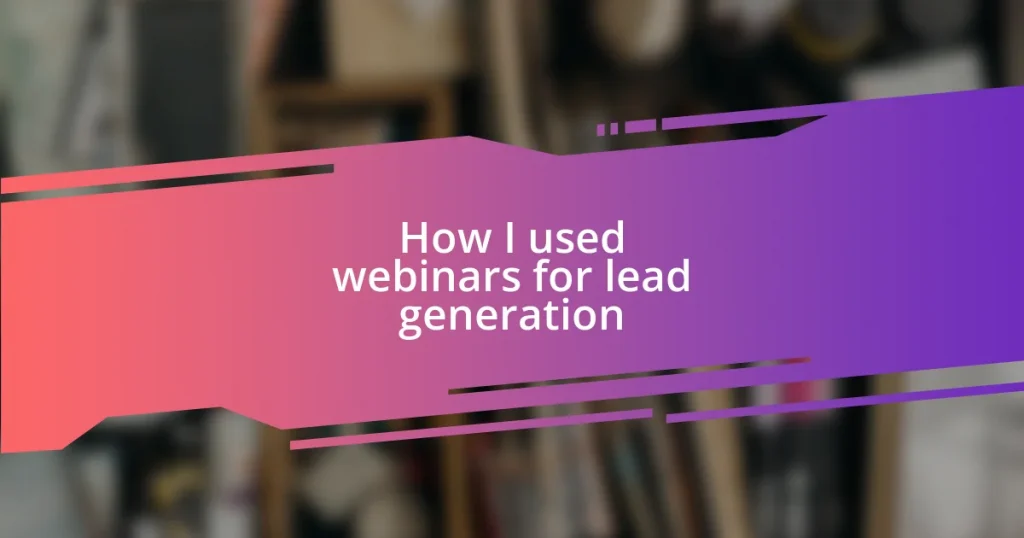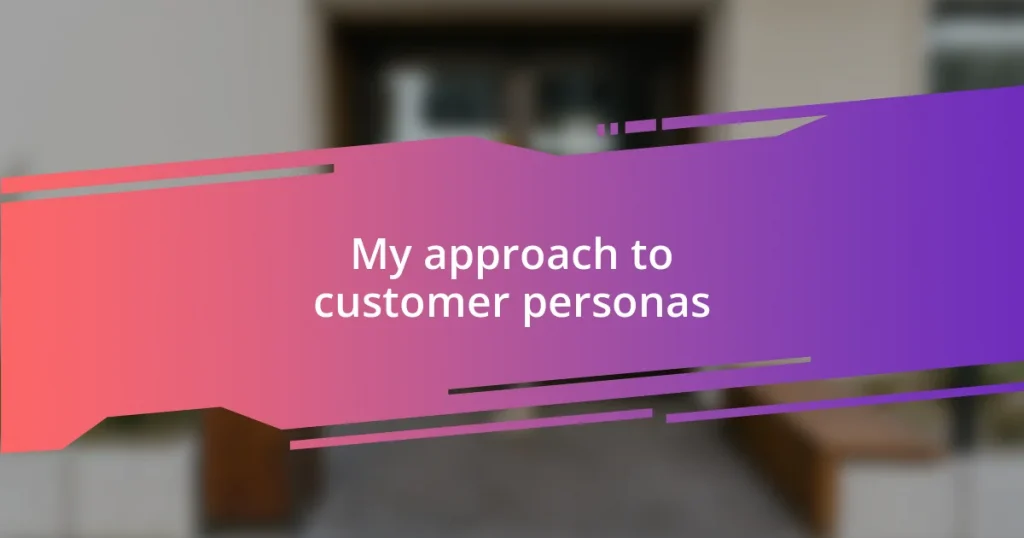Key takeaways:
- Attending workshops fosters personal growth by confronting fears, embracing imperfections, and connecting with diverse perspectives, which enhances creativity and self-discovery.
- Key skills developed in workshops include effective communication, adaptability, and leadership, which significantly improve personal and professional relationships.
- Networking during workshops creates lasting connections that can lead to mentorship, collaborations, and increased opportunities in one’s career.
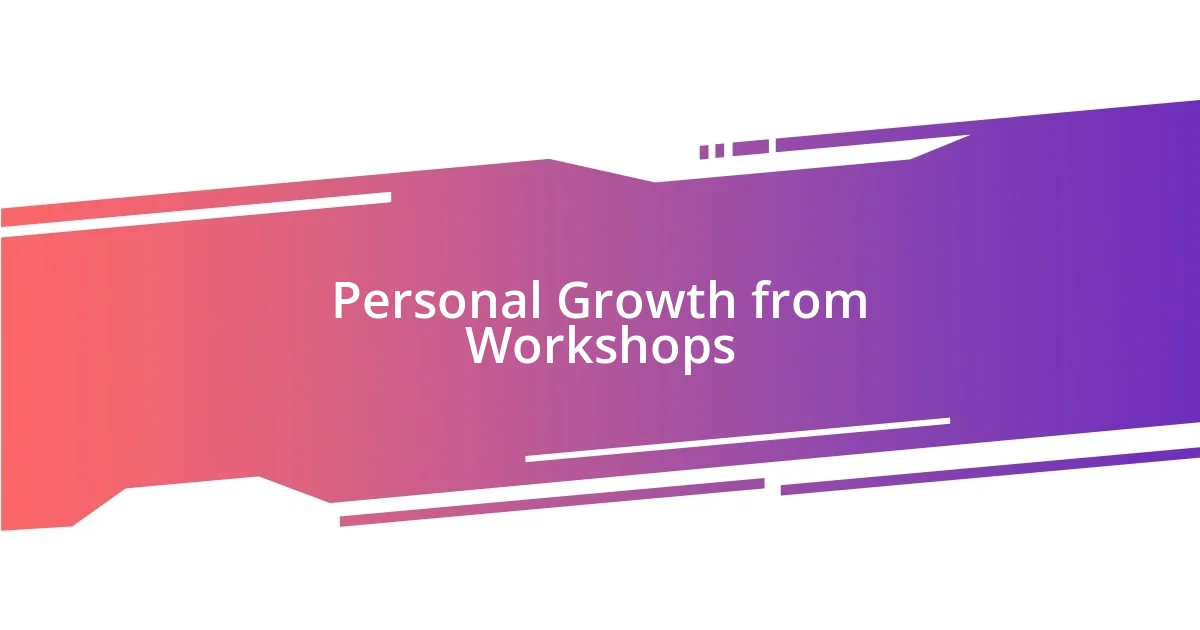
Personal Growth from Workshops
Attending workshops has been a transformative experience for me, pushing me outside my comfort zone in ways I never anticipated. I remember feeling nervous before my first public speaking workshop. But as I stood up, sharing my thoughts with a supportive group, I realized that confronting fear head-on not only built my confidence but also ignited a passion in me for sharing ideas.
During a recent creativity workshop, I was surprised by how liberating it felt to let go of perfection. We engaged in playful exercises, doodling and brainstorming without judgment, which prompted me to reflect: could embracing imperfection actually enhance my creativity? The emotional release I felt during these activities opened up a new perspective on creativity, allowing me to experiment without the pressure of producing a masterpiece.
Furthermore, connecting with diverse individuals at these workshops has enriched my understanding of various viewpoints. I recall a conversation with a participant who had a completely different approach to problem-solving. It made me question my own methods and consider how collaboration could lead to innovative solutions. Isn’t it fascinating how a simple interaction can lead to profound personal growth? Each workshop becomes a catalyst for self-discovery, offering valuable insights that I carry long after the event ends.
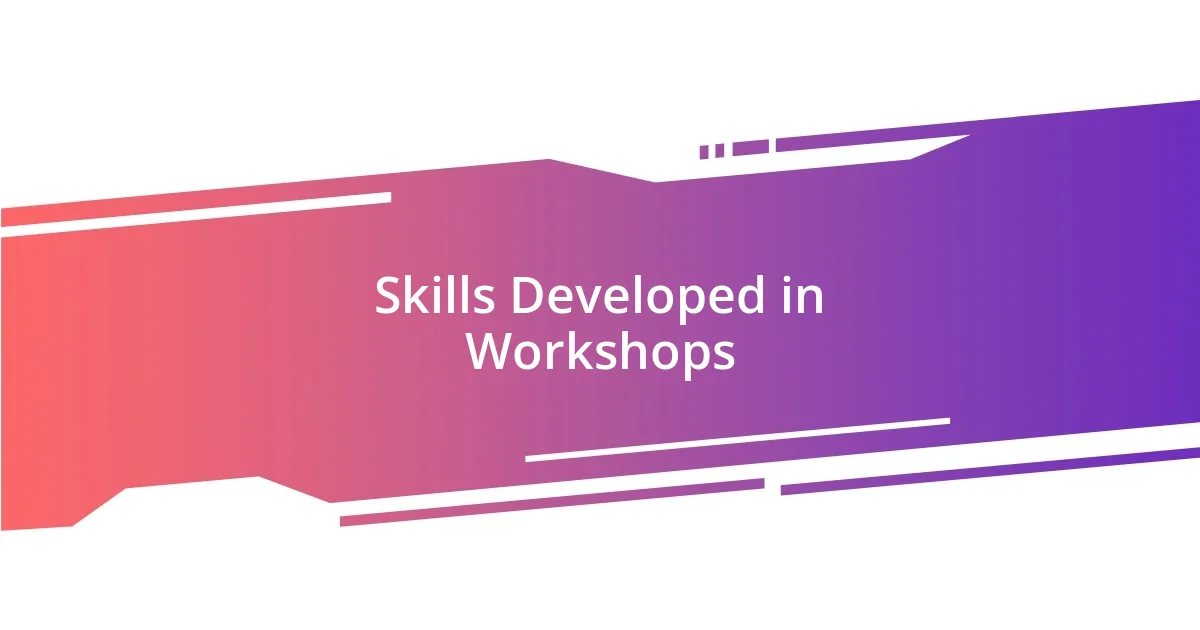
Skills Developed in Workshops
One of the most valuable skills I’ve gained from attending workshops is effective communication. In one particular workshop focused on negotiation skills, I practiced articulating my ideas clearly while being mindful of others’ perspectives. I still remember how I felt a mix of excitement and apprehension when practicing role-playing scenarios. This hands-on experience helped me understand how vital it is to listen actively and respond thoughtfully—skills that have since enhanced both my personal and professional relationships.
Another skill that I’ve honed is adaptability. During a workshop on digital marketing, we were thrown into a fast-paced environment where we had to pivot our strategies based on real-time feedback. It was both intense and exhilarating! This taught me the importance of being flexible and open-minded, especially when facing unexpected challenges. I’ve applied these lessons in my work, and it has genuinely changed how I approach new projects.
Lastly, I’ve found that workshops boost my leadership abilities. Participating in a team-building workshop allowed me to take on various roles within group activities. I remember stepping up as a coordinator in one exercise—I felt a sense of responsibility and was surprised at how naturally it came to me. This experience reinforced my belief that leadership isn’t just about authority; it’s about encouraging collaboration and fostering a supportive team environment.
| Skill | Experience Gained |
|---|---|
| Effective Communication | Practiced clear articulation and active listening during a negotiation skills workshop. |
| Adaptability | Learned to pivot strategies quickly in a digital marketing workshop based on real-time feedback. |
| Leadership | Discovered natural coordination abilities in team-building activities, emphasizing collaboration. |
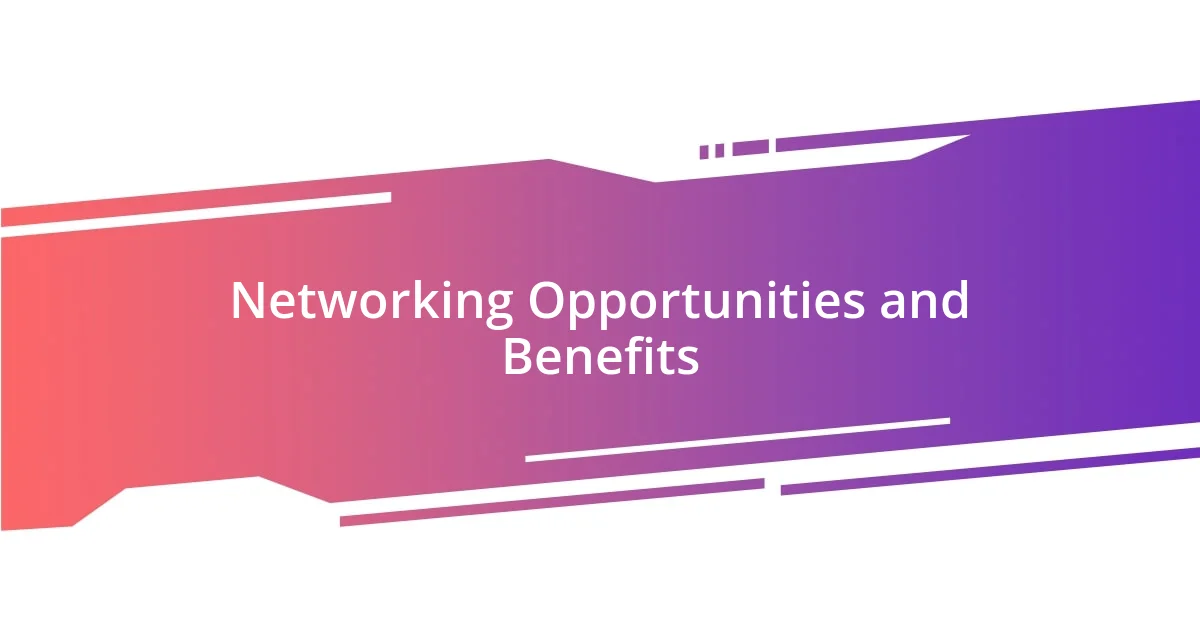
Networking Opportunities and Benefits
Networking at workshops has opened doors I never knew existed. It’s remarkable how a simple conversation can lead to partnerships or friendships. I’ll never forget meeting a fellow attendee during a tech workshop; we bonded over our shared challenges in digital innovation. That day, we exchanged contact information and ended up collaborating on a project that has since garnered recognition. Connectivity at these events is not just about exchanging pleasantries; it’s about catalyzing growth and opportunity.
- Access to diverse perspectives enhances problem-solving strategies.
- Building relationships can lead to mentorship opportunities.
- Expanding professional connections can open doors to job offers and collaborations.
- Sharing experiences fosters a sense of community and support.
I’ve also learned that the benefits of networking extend beyond the event. After attending a workshop on career development, I followed up with several participants on LinkedIn. This ongoing relationship led to valuable advice during my job search and even helped me land a role through a referral. Each connection feels like a thread woven into the fabric of my professional journey—some threads may be small, but they can collectively become a strong tapestry. It’s this kind of organic growth that makes attending workshops truly worthwhile.
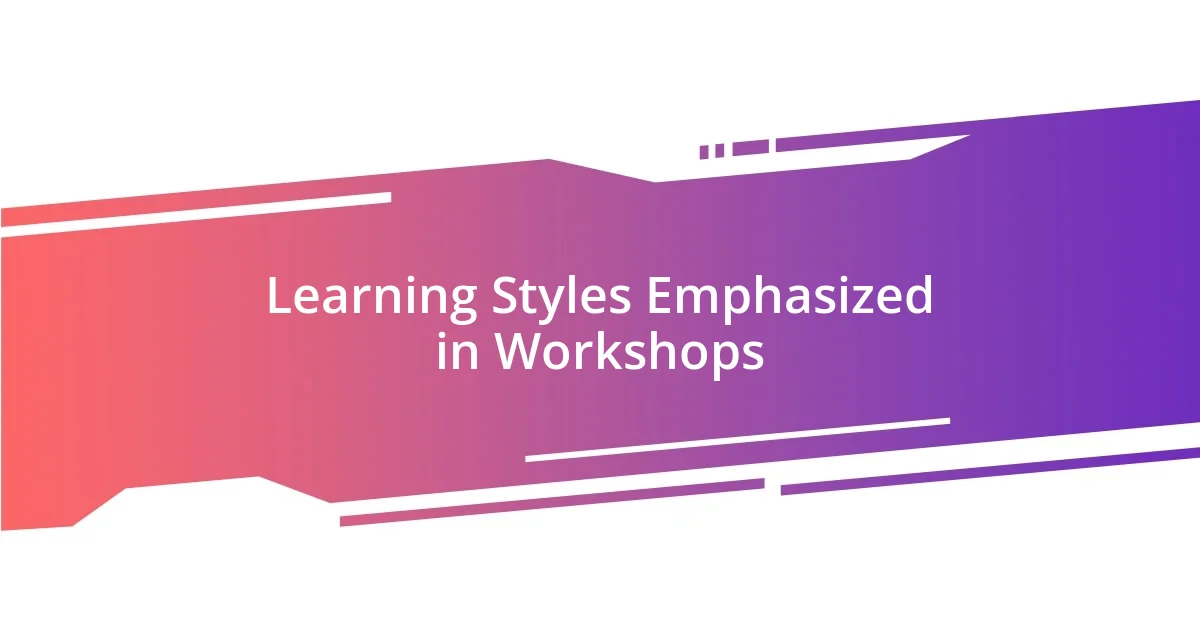
Learning Styles Emphasized in Workshops
Attending workshops has been a real eye-opener for my understanding of different learning styles. I vividly remember one workshop that integrated varied approaches like visual aids, hands-on activities, and group discussions. It struck me how these diverse methods catered to different participants—some thrived on immediate practice, while others absorbed information best through visuals. I found myself reflecting: how often do we restrict our learning by sticking to a single style? Embracing multiple styles not only amplifies engagement but also enhances retention.
During a personal development workshop, I noticed that kinesthetic learners, like myself, were particularly eager to jump into interactive tasks. I felt a rush of excitement when we were engaged in team exercises that required us to physically express concepts. This element not only made the learning experience more dynamic but also created an opportunity for deeper connection with fellow attendees. It was through these interactions that I realized the power of hands-on learning—it transforms theoretical knowledge into practical skills that we can immediately apply.
Another striking aspect is how auditory learners benefited from the open discussions we had. Listening to others share their insights and experiences added dimensions to the material that the instructor presented. In one session, I found myself captivated by a participant’s story, which resonated with my own struggles. It made me ponder on this: how can we foster more of such dialogue in our learning environments? Workshops that emphasize varied learning styles not only enrich the content but also create a community of shared experiences that stick with us long after the event ends.
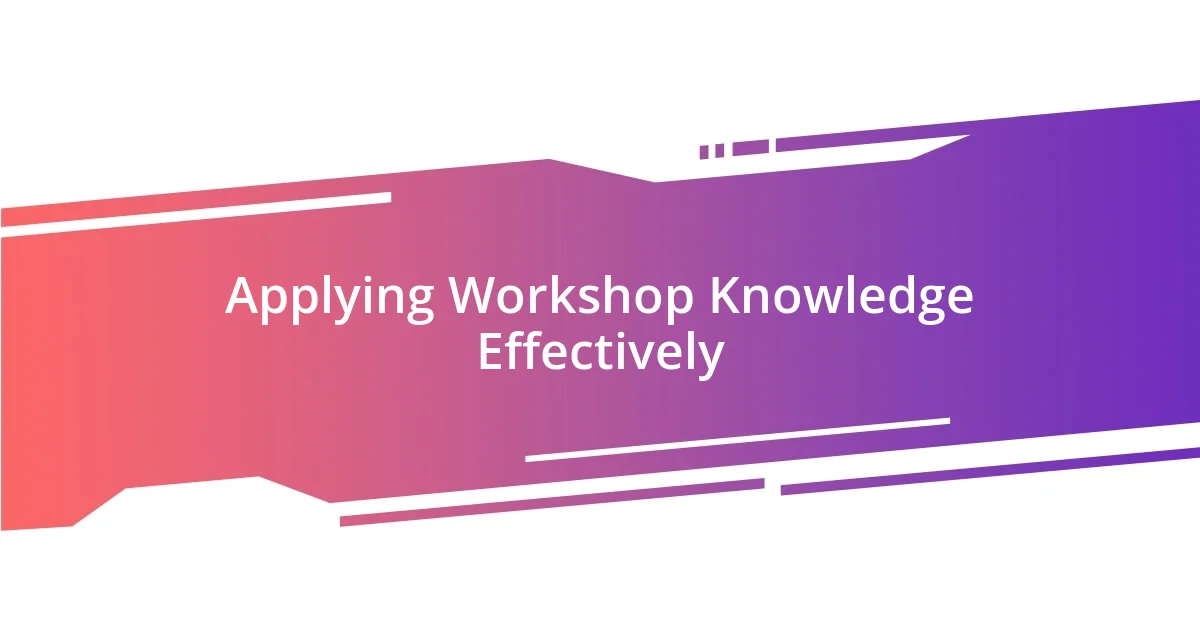
Applying Workshop Knowledge Effectively
One of the most valuable lessons I’ve gleaned from workshops is the importance of not just absorbing knowledge, but actively applying it afterward. After a particularly inspiring session on creative problem-solving, I felt a surge of motivation. I took some time to map out how these techniques could solve real issues in my work. I ended up implementing a brainstorming session that transformed our team’s approach, paving the way for innovative solutions. Isn’t it fascinating how actionable steps spring from inspiration when we commit to applying what we’ve learned?
I firmly believe that efficient application comes from creating a structured plan. For instance, after attending a workshop on project management, I devised a checklist based on the strategies shared. I faced challenges initially, but by reviewing the techniques we’ve discussed in the workshop, I noticed my confidence blossoming. It’s as if each step I took was a reflection of the knowledge I had engaged with, creating a symbiotic relationship between the workshop and my work life.
Finally, I’ve learned that regular reflection is key to deepening my understanding. I make it a habit to jot down notes after each workshop, not just about the content, but also my feelings and reactions. Recently, while revisiting my notes from a marketing workshop, I stumbled upon a strategy that resonated with me. Realizing its potential, I experimented with it in my campaigns, resulting in a significant boost in engagement! Do you take the time to reflect on how you can creatively implement new knowledge? I find that this practice amplifies my learning journey, bridging the gap between theory and practice in a powerful way.
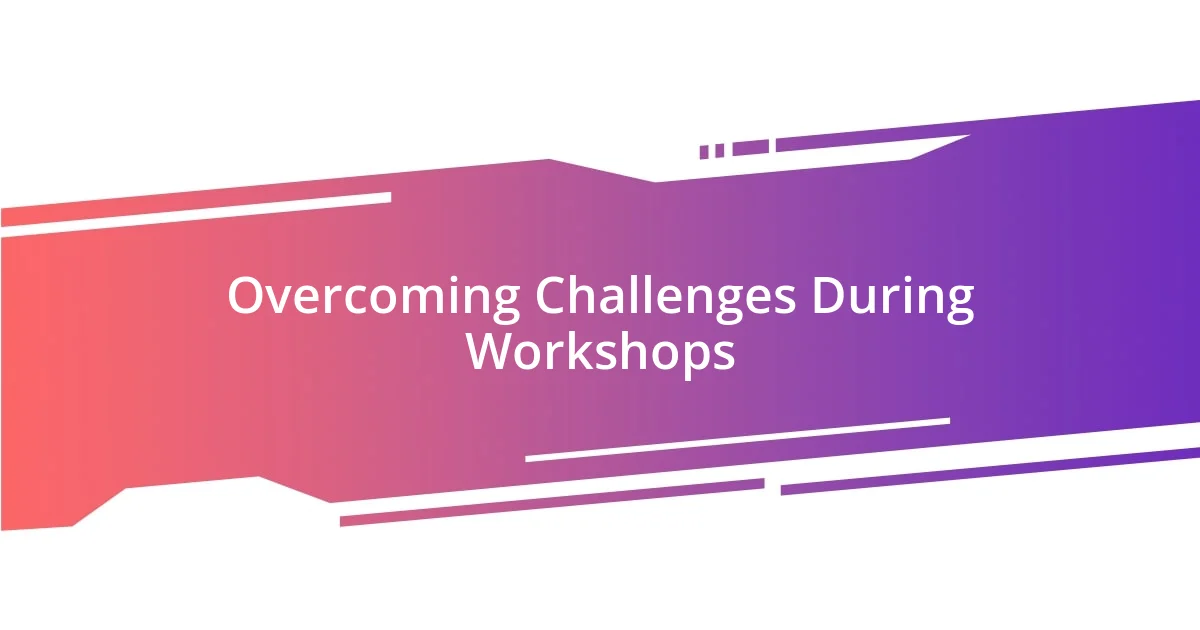
Overcoming Challenges During Workshops
When I attended a workshop on public speaking, I faced my fear head-on. Standing in front of the group, my palms were sweaty, but I pushed through. It dawned on me that everyone else was just as nervous. This realization turned my anxiety into excitement—what if we could all support each other? Feeling that shared vulnerability created an incredible bond among participants, turning a challenge into a collective experience.
Another challenge I encountered was the overwhelming amount of information presented. I remember sitting there, trying to absorb everything, feeling a bit lost. Instead of panicking, I decided to take a deep breath and focus on key takeaways. I started jotting down the three biggest insights I could apply immediately. Surprisingly, this not only helped me filter the information better, but it also empowered me to engage in discussions confidently. Balancing the flood of ideas with practical takeaways truly shifted my perspective.
When tech issues interrupted a particularly engaging workshop, it could have spelled disaster. Instead, I was struck by how the facilitator handled it. With humor and grace, they turned the setback into an opportunity for improvisation and collaboration. I appreciated that adaptability; it inspired me to view challenges as chances to innovate rather than obstacles. Have you had a moment when a challenge turned into something unexpectedly positive? Those instances stay with me, reminding me that flexibility is crucial not just in workshops, but in life as well.
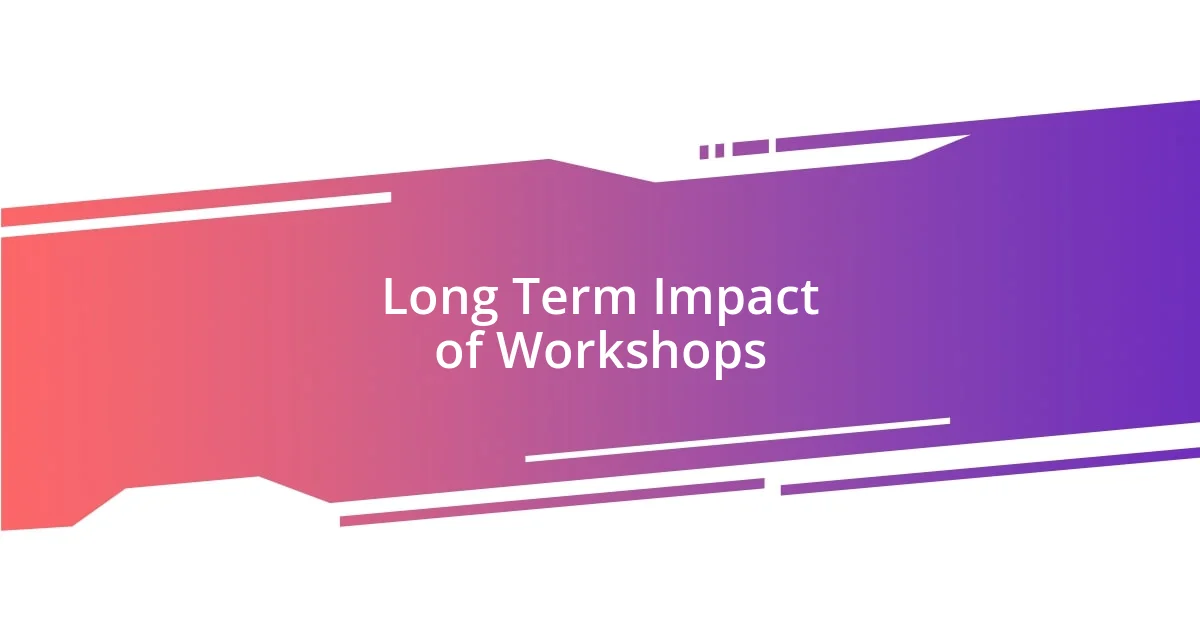
Long Term Impact of Workshops
I once attended a workshop on leadership that highlighted the concept of emotional intelligence. I learned that recognizing my own emotions and those of others profoundly impacts relationships at work. It’s a lesson I still carry with me; being able to navigate different personalities during projects has not only enhanced team dynamics but also fostered a culture of trust. Have you ever noticed how acknowledging someone else’s perspective can change the entire mood of a conversation?
Several months after a strategic marketing workshop, I found myself facing a tough client meeting. Drawing from the negotiation techniques we discussed, I approached the situation with newfound confidence. I remember vividly how, during that meeting, I could sense the shift when I employed active listening—it transformed the dialogue. This experience underscored for me the lasting value of workshops: they equip us not only with knowledge but with the skills to tackle real-life challenges.
The ripple effects of workshops often reach far beyond the immediate knowledge gained. For example, I applied insights from a time management seminar a year ago and noticed my productivity soared. By implementing their strategies into my daily routine, I not only met deadlines but also created space for creative thinking. Isn’t it remarkable how a few hours can lead to years of improved efficiency and fulfillment in our daily professional lives?
